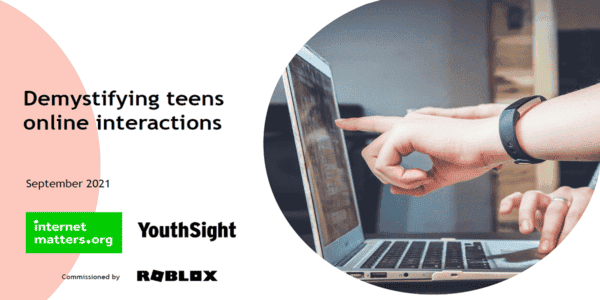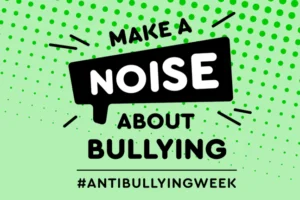Report overview
This report is the start of a partnership between Internet Matters and global platform, Roblox. We’ve joined forces to help parents and carers ensure young people have a safe and fulfilling experience online.
The research dives deep into the online lives of a group of teens, understanding how the internet allows them to, in their own words, become “a completely new person” and create “strong friendships,” which “bring out the best” in them.
Completed in association with YouthSight, this report let us interact with teen gamers, content creators and general internet users. We explored key themes around their identity online, including how it affects their personalities and relationships.
Key findings in teens’ online world
How teens interact with the internet varies from person-to-person; these individual experiences can be overlooked with larger groupings. This report focusses on nineteen personal stories from teens across different ethnicities, socio-economic groups, ages and regions.
According to our findings, when teens have greater agency, they make better decisions to improve their online experience. Alongside their connectedness and ability to have fun online, this was a key aspect of our teens enjoying their time spent online.
There was, however, a sense that perceived online lives can be unrealistic, and putting opinions or creative work out in the open can be a target for negativity.
Interactions with online gaming
Those that regularly use gaming platforms or devices online stood out as having a deeper sense of belonging and greater confidence online than those who didn’t game. Spaces where users can share their passion for gaming was important for these teens because they encourage freedom of self-expression.
However, there were exceptions to this. One female gamer felt that the gaming community was often seen as a “boy thing.” As such, she identified her gender was sometimes an issue. The report explores these concerns to better understand the teens’ lived experiences.
Further concerns highlighted in the report reveal how some teens online find setting time limits challenging and often struggle to “put their phone down.” Others admit they can feel “disconnected” with their offline world and want parents to be more involved.






